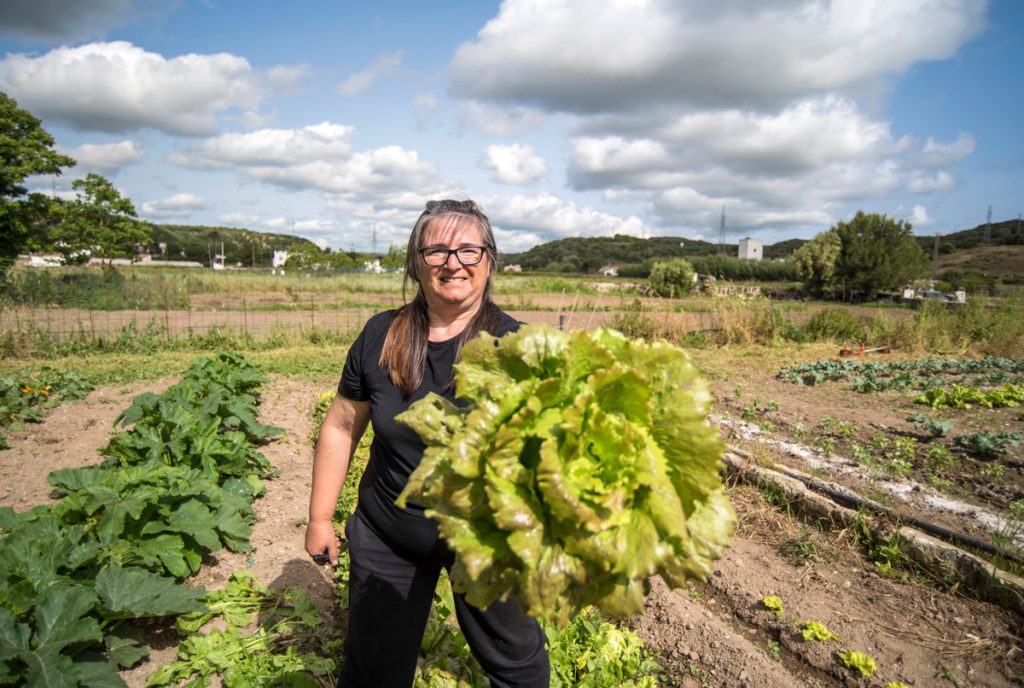What is the solution?
A Community of Practices (CoP) connecting small-scale food producers and consumers under shared values to facilitate the development of short-chain and sustainable food systems that work for nature and people, starting in the Mediterranean region.
This solution improves our resource security in the food category.
How does it #MoveTheDate?
Practicing an ethical code of environmental and social values, utilizing low-impact production systems, and reconnecting producers and consumers (by reducing the distance between them) helps disrupt the prevailing market.
How is it scalable?
A community of practices including all actors along the food chain systems can be created in any city to help people consider their food production and consumption choices and aid in the transition towards more sustainable food systems.
What is the solution?
A Community of Practices (CoP) connecting small-scale food producers and consumers under shared values to facilitate the development of short-chain and sustainable food systems that work for nature and people, starting in the Mediterranean region.
This solution improves our resource security in the food category.
How does it #MoveTheDate?
Practicing an ethical code of environmental and social values, utilizing low-impact production systems, and reconnecting producers and consumers (by reducing the distance between them) helps disrupt the prevailing market.
How is it scalable?
A community of practices including all actors along the food chain systems can be created in any city to help people consider their food production and consumption choices and aid in the transition towards more sustainable food systems.

The Foodnected Community of Practices (CoP) is an open network for all actors along the food system chain – producers, consumers, citizen, governments – to play a central role in the transition towards sustainable food systems. This CoP helps rethink our food consumption choices and favor a shift in our dietary choices to ease a reduction in the environmental impacts associated with food systems. Foodnected emphasizes that future food systems must incorporate social relations throughout production, trade and consumption so that they can provide healthy diets and ultimately determine fair and sustainable practices around the following pillars:
- Food sovereignty, quality and health: People both now and in the future enjoy access to food of high nutritional quality, while meeting dietary needs for a healthy life and fostering well-being; people, communities and societies have the right to define their own food systems and policies.
- Fair livelihoods and fair trade: Provision of food products generates fair economic returns along the supply chain and fosters the resilience of small-scale producer communities. It is incumbent upon governance systems to enable them to enjoy fair access to resources, regardless of gender, race or age. The supply chains are short, traceable and transparent.
- Local development, inclusive governance and social cohesion: Food systems foster the local development in their territories in which the role of women is valued and younger generations are engaged and empowered. In this context, resource management requires new models of governance that involve and hold all local stakeholders accountable with a community-based and participative approach.
- Low environmental impact: Fair and sustainable food systems prioritize local low-impact production systems that respect seasonality and the interconnectivity of ecosystems; they do no harm to the environment and preserve and restore soil, freshwater and marine resources; they respect animal health and welfare; they help mitigate climate change and adapt to its impacts; they not only avoid biodiversity loss but, promote regeneration; they prevent and minimize food losses and waste, disposal of which is integrated into the regenerative cycle.
- Traditional ecological knowledge: Fair and sustainable food systems preserve and foster local and traditional knowledge that respects the balances of nature, while promoting innovation, creativity and social entrepreneurship, and is recognized as complementary to scientific knowledge.
In the long run, the CoP will also offer an online platform for interested consumers to purchase sustainable food products directly from small scale producers
There’s no benefit in waiting!
Acting now puts you at a strategic advantage in a world increasingly defined by ecological overshoot. Countless solutions exist that #MoveTheDate. They’re creative, economically viable, and ready to deploy at scale. With them, we can make ourselves more resilient and #MoveTheDate of Earth Overshoot Day. If we move the date 6 days each year, humanity can be out of overshoot before 2050.
